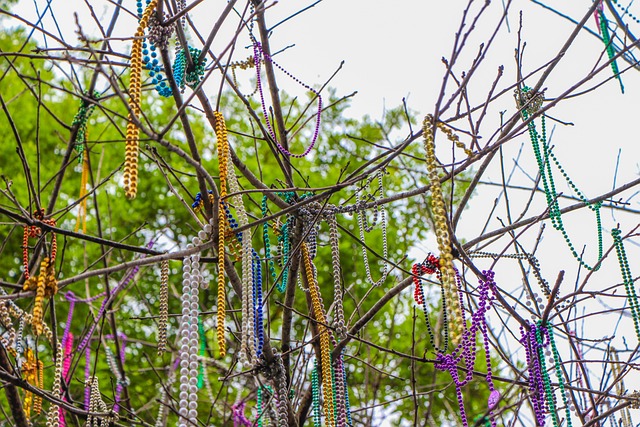In Louisiana, MMJ (medical marijuana) access has evolved, reflecting national cannabis reform trends. The state allows MMj for specific conditions under strict regulations, with patient recommendations from licensed healthcare providers. Despite changes, Louisiana maintains a cautious approach, keeping MMj on controlled substances lists and regulating at both state and federal levels. Residents considering MMj must stay informed about local laws and consult healthcare professionals.
Is medical marijuana legal in Louisiana? As of recent years, the state has seen significant shifts in its legislation regarding MMj. In this comprehensive guide, we’ll navigate the current legal status of medical marijuana in Louisiana, tracing its historical progression. We’ll delve into who qualifies for medical use, the steps to obtain a card, legal consumption methods, and expected benefits and side effects. Additionally, we’ll explore ongoing challenges, potential future changes, and more, providing an in-depth look at MMj in Louisiana.
- MMj in Louisiana: Current Legal Status Overview
- Medical Marijuana Laws: A Brief History in Louisiana
- Who Qualifies for Medical Use in LA?
- The Process of Obtaining a Medical Marijuana Card
- Where to Buy and How to Consume MMj Legally
- Potential Benefits and Side Effects: What to Expect
- Challenges and Controversies Surrounding MMj in Louisiana
- Future Prospects: Potential Changes in Louisiana’s Laws
MMj in Louisiana: Current Legal Status Overview

In Louisiana, the current legal status of medical marijuana (MMJ) is a topic of evolving regulation. As of recent years, the state has taken significant steps toward normalizing MMJ, yet it remains a complex and nuanced area of law. Louisiana laws allow for the use of medical marijuana for certain qualifying conditions under strict regulations. Patients with specific medical diagnoses can obtain MMJ recommendations from licensed healthcare providers. However, the state maintains a controlled substance list, and MMJ is strictly regulated at both the state and federal levels.
The legal framework for MMJ in Louisiana has been subject to change, reflecting a broader national trend toward cannabis reform. While there have been efforts to expand access and clarify regulations, the state’s approach to MMJ remains cautious. It’s crucial for residents considering medical marijuana as an option to stay informed about local laws and consult with healthcare professionals who can guide them through Louisiana’s specific requirements for MMJ in Louisiana.
Medical Marijuana Laws: A Brief History in Louisiana

In recent years, the landscape of medical marijuana (MMJ) in Louisiana has undergone significant changes, reflecting a broader national trend toward decriminalization and acceptance. Historically, Louisiana had some of the strictest medical marijuana laws in the country, with no clear path to legal access for patients until 2014. That year, the state passed legislation allowing limited access to MMJ for patients with specific medical conditions, such as epilepsy and cancer.
However, full legalization has been a gradual process. In 2018, Louisiana voters approved Amendment 2, which legalized medical marijuana for qualified patients and established a regulatory framework for its use. This marked a pivotal moment in the state’s MMJ in Louisiana journey, paving the way for patients to access a safer, more effective alternative for managing chronic pain and other debilitating conditions. Since then, the state has implemented regulations, licensed dispensaries, and trained medical professionals to ensure safe and responsible access to MMJ in Louisiana.
Who Qualifies for Medical Use in LA?

In Louisiana, individuals with specific medical conditions can qualify for the use of Medical Marijuana (MMJ in Louisiana). The state’s program, established under the Louisiana Medical Marijuana Act, allows access to MMJ in Louisiana for patients suffering from severe or chronic ailments. Qualifying conditions include seizures, multiple sclerosis, cancer, HIV/AIDS, and terminal illnesses with life-limiting symptoms.
To be eligible, patients must be at least 18 years old, have a valid Louisiana ID, and be diagnosed by a qualified healthcare provider who can certify that the patient meets the state’s criteria. Patients are required to register with the Louisiana Department of Health and participate in a secure, state-regulated program to obtain their MMJ in Louisiana. This ensures access to safe, regulated medical marijuana products tailored to their specific needs.
The Process of Obtaining a Medical Marijuana Card

Obtaining a Medical Marijuana Card (MMJ in Louisiana) is a multi-step process designed to ensure patient eligibility and responsible use. The first step involves consulting with a qualified healthcare provider who can evaluate your medical history and current condition. If the provider determines that you meet the state’s criteria for medical marijuana use, they will recommend specific strains or types of MMJ in Louisiana that could provide the best therapeutic benefits for your particular needs.
Once you have this recommendation, patients must register with the Louisiana Department of Health (LDH) and pay the necessary fees. This involves submitting relevant documentation to prove residency and eligibility, including proof of identification and a valid driver’s license. After registration, patients can visit licensed MMJ dispensaries in Louisiana to purchase their prescribed products, ensuring they adhere to the state’s strict regulations regarding dosage, form, and usage guidelines.
Where to Buy and How to Consume MMj Legally

In Louisiana, medical marijuana, or MMj, is legal for qualified patients under the state’s Medical Marijuana Program. To purchase MMj in Louisiana, individuals must first obtain a recommendation from a licensed healthcare provider who specializes in cannabis medicine. Once you have your recommendation, you can visit one of the approved MMJ dispensaries across the state. These facilities are regulated by the Louisiana Department of Health to ensure product safety and quality.
There are several methods to consume MMj legally in Louisiana. Patients can choose from various forms such as oils, edibles, capsules, topicals, and more. Smoking flower is also an option but must be done responsibly and within legal limits. Always follow local regulations and consult with a healthcare provider for guidance on the best consumption method based on individual needs and health conditions.
Potential Benefits and Side Effects: What to Expect

Medical marijuana, or MMJ in Louisiana, has gained attention for its potential therapeutic benefits. Several studies suggest that it can help alleviate symptoms associated with various medical conditions like chronic pain, multiple sclerosis, and nausea caused by chemotherapy. Its anti-inflammatory properties have shown promise in managing conditions such as arthritis and epilepsy. The plant’s active compounds, particularly THC (tetrahydrocannabinol) and CBD (cannabidiol), interact with the body’s endocannabinoid system to produce these effects.
However, it’s crucial to be aware of potential side effects associated with MMJ in Louisiana. Common short-term impacts include altered perception, increased heart rate, and heightened sensitivity to sensory stimuli. Long-term use may lead to respiratory issues due to smoking or vaping, and there are concerns about its impact on mental health, particularly for young individuals. Regular consumption could also result in dependence and cognitive impairment. It’s essential to consult healthcare professionals before using MMJ in Louisiana to ensure safe and informed decision-making regarding its application as a treatment option.
Challenges and Controversies Surrounding MMj in Louisiana

The path to legalizing medical marijuana (MMj) in Louisiana has been fraught with challenges and controversies. While there have been growing calls for MMj reform, the state’s strict controlled substance laws have historically hindered efforts. The debate revolves around balancing public safety concerns with patient access to potentially life-changing treatments.
Supporters of MMj in Louisiana argue that allowing qualified patients access to cannabis-based therapies can reduce reliance on powerful and often harmful prescription opioids. They also point to the successful implementation of MMj programs in other states, highlighting reduced crime rates and improved quality of life for patients. Conversely, opponents raise concerns about potential misuse, increased accessibility to minors, and the need for further research into long-term effects. The ongoing discourse underscores the complex nature of MMj in Louisiana, where striking a delicate equilibrium between public health and personal freedoms remains a central challenge.
Future Prospects: Potential Changes in Louisiana’s Laws

The current legal status of medical marijuana (MMJ) in Louisiana leaves many patients in a complex position. While some forms of cannabis are legal for specific medical uses, the overall landscape remains murky and evolving. As of now, Louisiana allows the use of cannabidiol (CBD) oil with a doctor’s recommendation for certain conditions like epilepsy. However, traditional MMJ with higher concentrations of THC remains illegal at the state level.
Looking ahead, there’s a growing momentum for change. Pro-marijuana advocates are pushing for more comprehensive legislation to legalize and regulate MMJ in Louisiana, similar to neighboring states. The future prospects of MMJ in Louisiana hinge on public sentiment, legislative efforts, and potential policy shifts at both the state and federal levels. With increasing support and evolving scientific understanding, there’s a chance that patients could soon have access to a wider range of medical cannabis options.
In light of the evolving landscape of medical marijuana laws, Louisiana has made significant strides toward recognizing its potential therapeutic benefits. The state’s current legal status allows for limited access to MMj for qualifying patients, offering a glimmer of hope for those seeking alternative treatment options. As public awareness and advocacy continue to grow, future prospects for more comprehensive legalization in Louisiana appear promising, potentially revolutionizing access to this controversial yet promising medicine.
